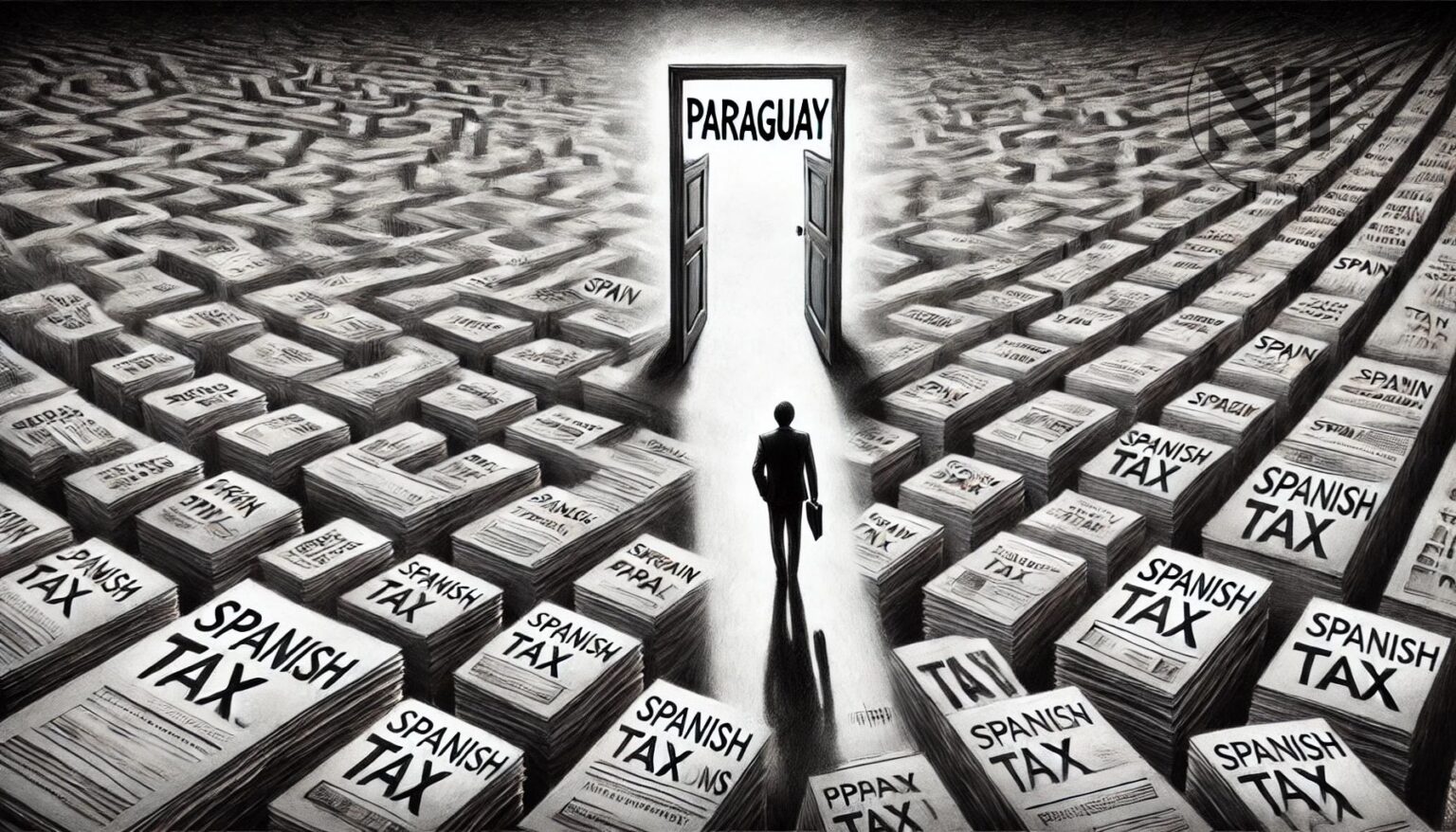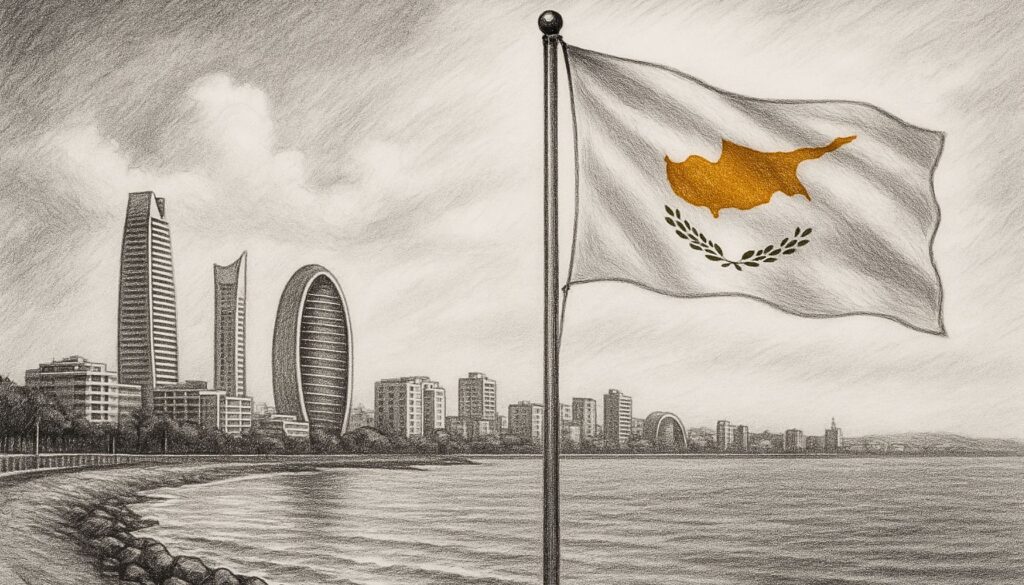Today we’re going to talk about a case that represents many expatriates who want to cut fiscal ties with their home country. To do this, we’ll use the example of a Spaniard, because the Spanish Tax Agency is particularly aggressive when it comes to squeezing every last penny. But be aware: this is not exclusive to Spain. Many other countries apply similar criteria to retain their taxpayers, so if you’re from France, Italy, Germany, or any other country with a revenue-hungry tax system, stay tuned because this also affects you.
Carlos was fed up. Fed up with paying taxes for everything in Spain, fed up with his rent, savings, and even investments being mercilessly drained by the tax authorities. So he made a decision: he was leaving Spain. He packed up his life, found a country with a territorial tax system (in this case, Paraguay), and thought that would be enough to stay safe. Wrong.
Because here’s the reality check: Spain doesn’t let go that easily. You can live abroad, take selfies on the beach, pay zero taxes in your new country… but if your center of economic interests is still in Spain, the tax authorities will still consider you their taxpayer. And that means you’ll keep paying taxes in Spain, even if you never set foot on the territory.
What does this mean in practice? That even though Carlos has changed his residence, if his main income, investments, or business are still in Spain, the tax authorities will still treat him as just another Spaniard to squeeze. And the worst part is, in many cases, they have legal grounds to do so.
If you’re also planning to leave Spain and optimize your tax burden, you’d better understand how to properly move your center of economic interests. Because if you don’t do it right, you might end up with the worst situation: paying taxes in two countries with the Spanish tax authorities breathing down your neck.
In this article, we break down the myth of “I’ll just leave and stop paying” and explain how to prove that your center of economic interests is outside of Spain, without making mistakes that could lead to an inspection and a big fiscal scare.

Why Paraguay?
After the reality check we just gave Carlos, the next logical question is: why do so many expatriates choose Paraguay to optimize their tax situation? Is it really as good as it’s made out to be? Or is it just another overrated destination?
Well, Paraguay has something that sounds like sweet music to any taxpayer: territorial taxation.
Indice del artículo
The Paradise of the Territorial Tax System
Unlike countries like Spain, where they chase you for every euro you earn anywhere in the world, Paraguay operates under a territorial tax system, meaning they only tax income generated within their borders.
That means, if you have properties in Spain, investments in Switzerland, and a company in Hong Kong, Paraguay won’t touch a penny of that income, as long as it doesn’t come from activities carried out within Paraguay.
In practical terms, this translates to:
✅ If you have rental income abroad, you don’t declare it in Paraguay.
✅ If you invest in international markets, you don’t pay taxes on those profits.
✅ If you’re a freelancer or business owner invoicing clients outside of Paraguay, no taxes are applied.
The difference with worldwide taxation countries like Spain, France, or Germany is huge. In these countries, even if you move to the other side of the planet, you remain their tax hostage unless you sever the ties properly.
But beware, Paraguay isn’t the only country with this tax model. Here’s where we compare it to other similar destinations.
How Does Paraguay Compare to Panama, Costa Rica, or the Dominican Republic?
Paraguay isn’t alone in the club of countries with territorial taxation. Other popular destinations include:
- Panama: It also has a territorial tax system and is widely used for offshore structures, but the bureaucracy and cost of living are notably higher. In recent years, regulatory pressure has increased, making it harder to open bank accounts for foreigners.
- Costa Rica: It has the same territorial taxation principle, but requires more physical presence, and the cost of living is much higher than in Paraguay. Additionally, the residency process is more cumbersome.
- Dominican Republic: It has a similar territorial tax system but is less stable economically and politically, creating long-term uncertainty.
So, why is Paraguay becoming the favorite of expatriates and digital nomads? Because it offers a unique combination of benefits that make it especially attractive.
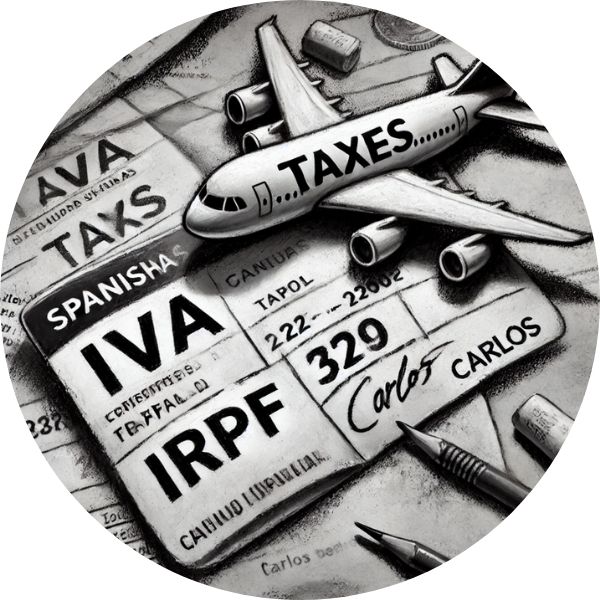
The Extra Benefits of Paraguay for Expats and Digital Nomads
📌 Easy Residency with Few Requirements – Unlike Panama or Costa Rica, obtaining residency in Paraguay is a much more streamlined process, with no need to invest large sums of money.
📌 Low Cost of Living – An expatriate can live comfortably with much less money than in other territorial taxation destinations.
📌 Stability and Flexibility – Paraguay is not a tax haven nor is it on blacklists, which gives it an advantage over other jurisdictions under international pressure.
Now, back to Carlos’s case: if he plays his cards right and properly moves his center of economic interests, Paraguay could be the key to optimizing his tax burden without problems with the tax authorities.
But of course… here comes the big obstacle: Spain (or any other country with a worldwide taxation system) won’t let you go so easily. And if you don’t make the move correctly, Paraguay won’t help because you’ll still be on the radar of the Tax Agency.
How to Avoid That Fatal Mistake? I’ll explain in the next section.
Spain Won’t Let You Go That Easily: How to Avoid Being Taxed Again
At this point, everything sounds wonderful, right? Paraguay offers territorial taxation, doesn’t touch your foreign income, and is affordable. But here comes the part most don’t want to hear: your home country will do everything possible to keep considering you a tax resident and taxing you, even if you don’t live there anymore.
Because leaving is not as easy as it seems. If you think that with just a plane ticket and a rental contract in Paraguay, you’ve ended your relationship with the tax authorities, I’ve got bad news for you.
How Spain (and Other Countries) Keep Chasing Their Taxpayers
Spain is a particularly aggressive case, but it’s not the only one. Many countries with worldwide taxation systems (where they tax everything you earn, no matter where you live) have mechanisms to keep squeezing their citizens and ex-residents.
Countries That Won’t Let You Go So Easily
- Spain: If you don’t prove it properly, you’ll still be considered a tax resident, even if you’re abroad. The tax authorities will consider you “theirs” if you meet certain criteria, and they’ll make sure you know it with fines and inspections.
- France: A tax hell. They have a similar mentality to Spain, with retroactive inspections and a history of making life difficult for those trying to leave the system.
- United States: Top level. If you’re a U.S. citizen, you can’t escape their taxes, even if you live on Mars. Only renouncing your citizenship will set you free.
- Germany: They apply similar economic and family criteria as Spain to determine if you’re still a tax resident.
If you live in any of these countries and don’t properly change your tax residency, your new country won’t help, because you’ll keep paying taxes in your old one.
To avoid this, you need to understand what makes a country still consider you a tax resident.
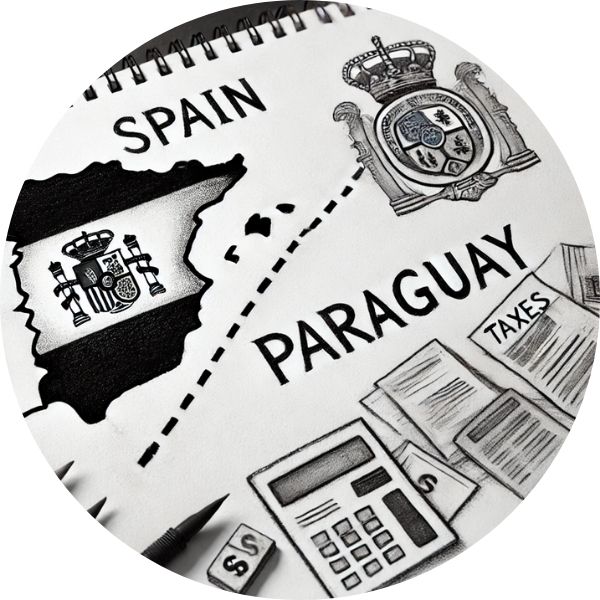
Criteria Spain Uses to Keep Charging You Taxes
Spain has several ways of continuing to consider you “theirs,” even if you no longer officially live there. Here are the main criteria that the Spanish Tax Agency (Hacienda) uses to not let you go:
The 183-Day Rule: How Much Time Do You Need to Spend Abroad?
If you spend more than 183 days a year in Spain, Hacienda automatically considers you a tax resident. It doesn’t matter if you have a residence in another country or pay taxes elsewhere, you will still be stuck.
Typical mistake: Thinking that just leaving the country for more than 183 days means you’re free. It’s not enough if you meet any of the other criteria.
The Center of Economic Interests: How to Prove You No Longer Belong to the Spanish System
Here’s the real trap. If most of your income, investments, or business are still in Spain, Spain will continue to consider you a tax resident, even if you live in another country.
Carlos’s example: He owns three rental properties in Madrid, maintains stock market investments, and his Spanish business is still running. For Hacienda, he’s still a tax resident.
Typical mistake: Moving without changing your economic structure. If you don’t sever your income ties to Spain, you’ll remain stuck.
The Center of Family Interests: Can Your Family Keep You Taxed?
If your spouse or dependent children live in Spain and depend on you financially, Hacienda can consider you a tax resident even if you don’t set foot in the country the entire year.
Miguel’s example: He moved to Paraguay, but his wife and 10-year-old daughter remained in Barcelona. Hacienda applies the “iuris tantum” presumption of residency to him.
Typical mistake: Not relocating the family when they truly depend on you financially.
The 4-Year Rule for Tax Havens: Does It Affect Paraguay?
If you move to a country considered a tax haven, Spain will continue to consider you a tax resident during the year of the move and the following four years.
Good news: Paraguay is not on Spain’s blacklist, so this point isn’t an issue.
The Issue Isn’t Moving, It’s Failing to Prove It Correctly
Carlos could live the whole year in Paraguay, but if he doesn’t properly structure where his income is coming from, how he organizes his assets, and what evidence he can provide, Spain can continue treating him as a tax resident and taxing him.
That’s why changing your tax residence isn’t just about geography. It’s a fiscal and legal strategy that must be done carefully.
In the next section, we’ll see what strategies you can use to ensure that Spain (or any other country) leaves you alone once and for all.
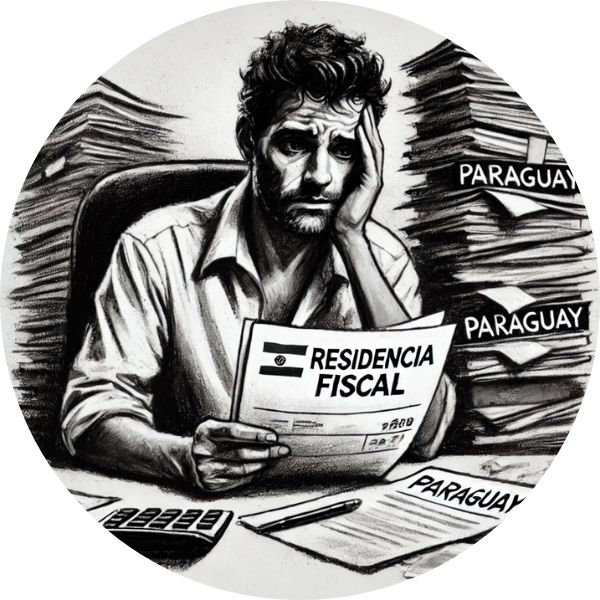
What to Do to Prevent Spain from Still Claiming Taxes
For Spain to leave you alone, it’s not enough to just say you’re living in another country. You need to comply with three key elements:
- Cut your physical presence (goodbye to the 183 days in Spain).
- Move your center of economic interests (it’s not enough to change your residence; Hacienda wants to know where you generate income).
- Prove that you’re truly living abroad (contracts, bank accounts, consumption, legal records…).
Carlos made the mistake of leaving his accounts, investments, and business in Spain without modifying his structure. As a result, Spain still considered him a tax resident.
To avoid this, the key is to make the transition flawlessly.
The Importance of an Impeccable Tax Residence in Paraguay
If you’re going to use Paraguay as your fiscal base, you better have everything in order. It’s not enough to just get residency and disappear.
Here’s what you need to do to make your residency in Paraguay credible:
- Ensure all official records show that you live there.
- Have a rental contract or property in your name.
- Open a local bank account and use it actively.
- Have registered local consumption (utility bills, supermarket expenses, subscriptions…).
- File your taxes in Paraguay.
Carlos thought that having the Paraguayan residency document was enough. It wasn’t. The Spanish Tax Agency argued that his economic life was still in Spain, so they kept him as a tax resident.
Strategies to Minimize the Tax Burden in Spain
Leaving Spain doesn’t mean you automatically stop paying taxes. If you don’t do it right, you might end up with the worst fiscal nightmare: being a resident in Paraguay and still having Spain claim taxes.
To avoid this, you can apply these strategies:
Reorganize Your Sources of Income
If 80% of your income still comes from Spain, Hacienda will see you as a tax resident even if you live in another country.
Solution:
- Diversify income outside of Spain.
- Avoid having your Spanish company pay you directly.
- Redirect income to a structure outside Spain.
Restructure Your Company or Economic Activity
If you have a company in Spain, you can’t just move and continue operating as usual.
Options:
- Open a new company in Paraguay or another country with better tax benefits.
- Limit your participation in the Spanish company and optimize the way you receive income.
- Consider selling or relocating the headquarters outside of Spain.
Carlos continued billing from Spain, which made things more complicated for him.
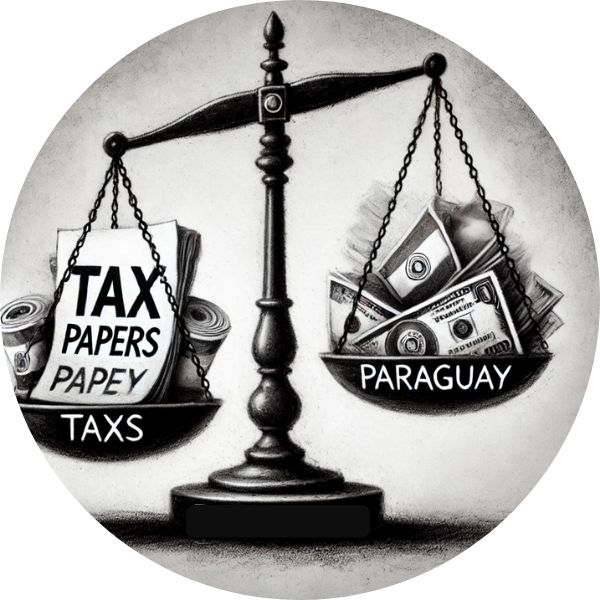
How to Manage Properties and Investments to Avoid Getting Trapped
One of the biggest mistakes expatriates make is keeping properties in Spain without a clear tax strategy.
If you continue generating income in Spain without control, you’re still tied to the tax system.
Should You Sell Your Properties in Spain?
It depends. If the properties generate significant income, they can be a hook for Hacienda to continue considering you a resident.
Options:
- Sell and reinvest in another country.
- Manage them through an offshore structure.
How to Prevent Hacienda from Using Your Investments in Spain Against You
If you have investments in Spain (stocks, funds, deposits), you’re still within the Spanish tax system.
Solution:
- Transfer part of your assets to structures outside Spain.
- Diversify into international markets with better tax systems.
- Avoid keeping most of your capital under Hacienda’s radar.
Carlos had investments in Spain and left them there. Result: Spain used that as an argument to continue taxing him.
Conclusion: If You Don’t Make the Transition Right, It’s All for Nothing
Moving to Paraguay can be an excellent tax strategy, but only if you make the transition correctly.
Carlos thought that changing countries was enough. It wasn’t. If you don’t reorganize your income, investments, and residency properly, Spain will continue taxing you.
To do it right:
✔️ Restructure your center of economic interests.
✔️ Ensure an impeccable tax residency in Paraguay.
✔️ Modify how you manage properties and investments.
If you do this right, you’ll enjoy optimized taxation.
